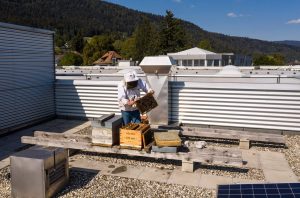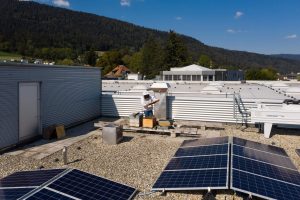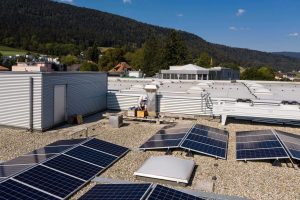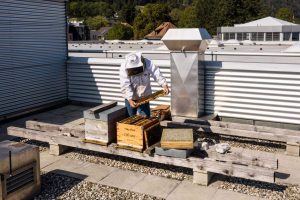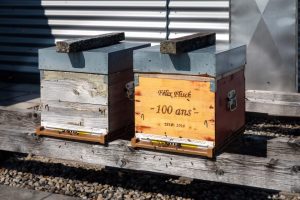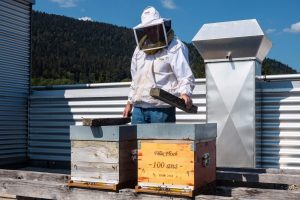
Sustainable Development, a natural value at FELCO
Respecting the environment and producing for and with nature, is a basic principle at FELCO. A leader in pruning shears and cutting tools integrated sustainable development long before the concept became fashionable everywhere. A discussion with Stéphane Poggi, COO of the company.
When did the concept of sustainable development first appear at FELCO?
This trend has always been part of the company. From the very beginning, 75 years ago, sustainability and respect for the environment was integrated in a very natural way in the production of our tools, without ever being part of a strategy. Today, at a time when sustainable development is a global issue and when many companies are required to completely change their practices, it is evident that we have always been in tune with this.
How can you explain this?
This is probably due to the strong bond we have with our customers. Winegrowers or arboriculturists, to name but a few, often manage estates which have been handed down from generation to generation. They are people with a long-term vision and for them, sustainability is a way of life. So, they want to find this principle in their tools as well. And the design of our pruning shears is a model of its own kind. These tools are made of aluminium, half of which is based on recycled metal. Moreover, the interchangeability and availability of all the parts makes regular maintenance possible and ensures that these tools last almost forever. There was therefore a whole universe which was conducive to developing this philosophy at our company.
So, this is an integral part of the company culture?
Thinking in terms of sustainability and respect for nature is a bit of a prerequisite for working at FELCO. Whether it be among the family members who own the company, the management and supervisory staff or the production employees, this penchant for ecology must be shared by everyone, at all levels.
Do you also show concern for the environment in your internal operations?
Yes, particularly throughout all our work processes. We have always been sensitive to the proper use of our resources and we closely observe the impact of our production on both the environment and human beings. For example, we have long since introduced performance indicators which compare water and electricity consumption or the carbon footprint per product tool from one year to the next. This influences our decisions, choices and investments.
In what way?
For example, we use only electricity from renewable sources. This includes electricity which we generate ourselves from our solar power plant on the roof of the factory. We have also made great efforts in the reprocessing of our wastewater or in the recovery of heat from our machines. And we often take the lead. Although not yet prohibited, we have already abandoned the use of phthalates in the manufacture of our tools. Sometimes our thinking goes much further.
Such as?
We also seek sustainability by acting on mobility. We already give priority to short routes in our production process and we also encourage our employees to avoid commuting. By car sharing, using public transport or even by relocating to Les Geneveys-sur-Coffrane, close to the factory. We also pay for employees to relocate if they come to live in the village. A dozen families have already taken advantage of this.
And when we support campaigns, it is often in line with a long-term vision. For example, we contribute to the financing of programmes to preserve plant species, such as the Crop Trust, the coffee conservatory in Costa Rica, the Old Vine Project which preserves old vines in South Africa or, closer to home, the Rétropomme association in Neuchâtel and its orchard of old varieties.
Our work sometimes takes on a more anecdotal side. Such as the hives which have been installed on the roof of the factory for a few years and which we use to produce our own honey.
And in the future?
Our efforts will continue as we always have projects in our pipeline, and once they are implemented we will be sure to communicate their progress as it is important for our customers and the communities where we operate understand our commitments in this area.
In a few figures
1.71 Kw/H of electricity are used to produce FELCO pruning shears. Consumption is constantly decreasing
50% of the aluminium used to produce the tools is of recycled origin
27% of employees live in the village
100% renewable energy used in manufacturing
